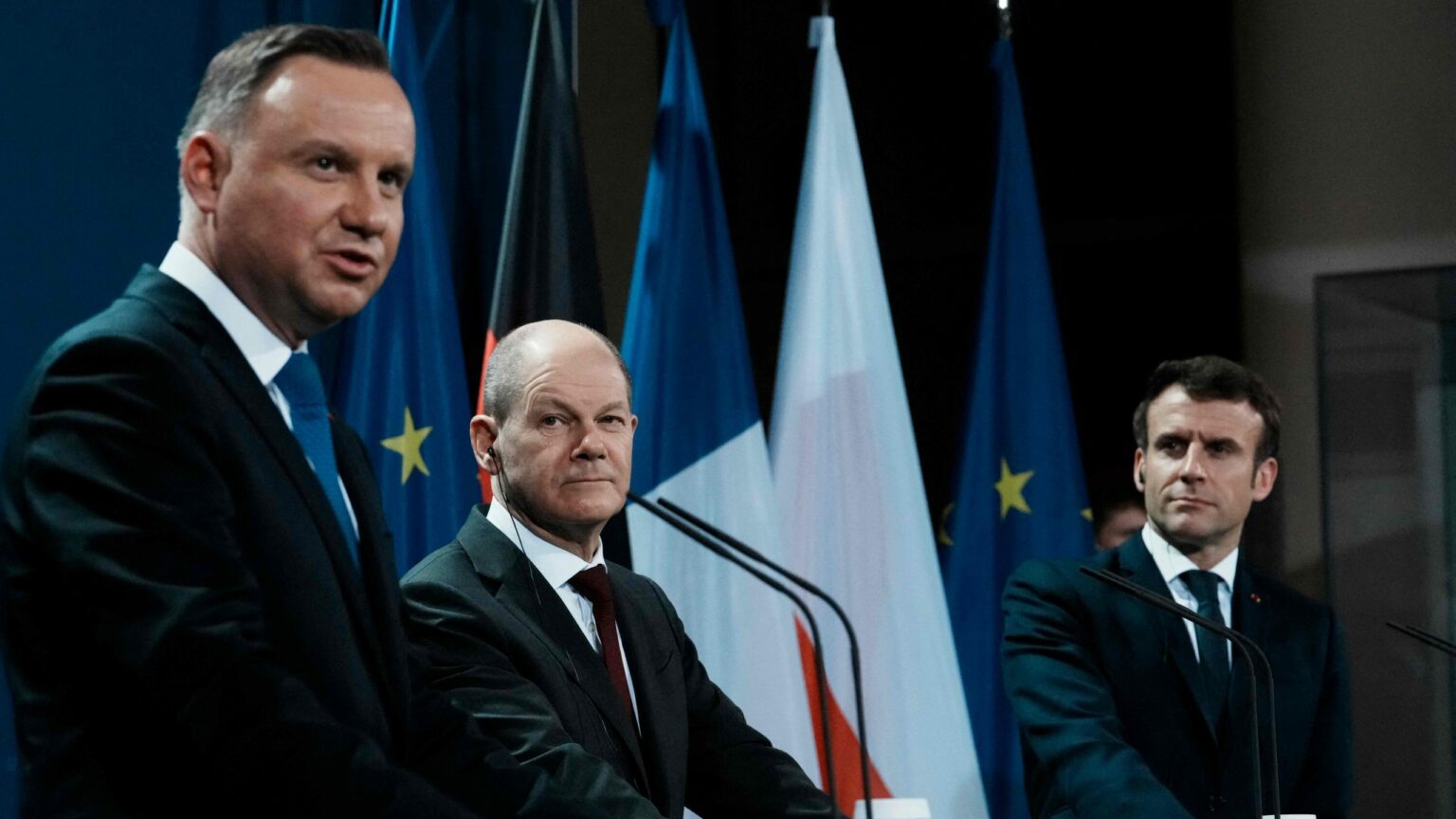Good omens auguring containment of the Ukrainian crisis started dawning following the visit of German Chancellor Olaf Scholz to Moscow on 15 February and his meeting with Russian President Vladimir Putin, where the two leaders looked into the possibility of containing the crisis through opening up a “serious” opportunity for parties to go back to the negotiating table. As an indication of Moscow’s bona fides, the Russian Ministry of Defense announced, simultaneously with Scholz’s visit, “partial” withdrawal of its forces participating in war maneuvers encircling Ukraine.
Despite that, full disengagement of the potential containment path from probabilities of re-escalation remains quite difficult, which makes the two scenarios all the more likely to arise.
In effect, Russia’s partial drawdown of up to 130,000 troops of its forces on the Ukrainian border doesn’t mean full withdrawal as was the case last year. Indeed, Russia isn’t likely to step towards withdrawal unless NATO and Ukraine take similar steps. Data published by Maxar Technologies up to the eve of the Russo-German meeting, revealed Russia’s deployment of multiple battle groups and military equipment, including attack helicopters, fighters, bombers, and ground attack aircraft, miles from the Ukrainian border. Therefore, a possible scenario is that the Russian withdrawal wasn’t more than a mere redeployment of forces, and if true, it is still just a symbolic move taken for considerations pertaining to Russia’s common interests with Germany.
The circumstances of Putin-Schulz’s press conference made it clear that both parties are on track for envisioning a containment strategy, starting from square one. Perhaps there are still doubts about the possibility of initiating containment efforts in a way that enables building confidence between the two parties to go along this path. Schulz, for example, carried no guarantees from the Ukrainian side and seemed skeptical about this step altogether to the extent that he didn’t answer a journalist’s question about whether he has knowledge that Ukraine and Georgia will not join NATO. Further, there are Russia’s demands of strategic guarantees regarding the deployment of the US missile shield within Russia’s vital space (600 km).
While NATO expressed cautious optimism about the recent drawdown of Russian forces, considering it as a “positive signal”, it is still doubtful about the step and declared that it will “investigate” the matter, convening meetings on 16 and 17 February. There will also be a meeting of defense ministers of Ukraine and Georgia to discuss the situation in the Black Sea. If anything, this reflects the fragile mutual confidence of both sides and supports Russia’s vision of the possibility of NATO continuing escalation, dealing with both countries as if they are NATO members without granting them membership.
Since Russia started the military build-up on the Ukrainian border, the European position on the crisis seemed inconsistent, particularly with Eastern European countries declaring taking a neutral stance on the crisis for fear of being drawn into the conflict. In many respects, European positions unveiled the fracture in the European security perception, the interest approaches that brought together Germany and Russia, and the nature of interrelationships among NATO members, where Britain seemed more enthusiastic about the US position.
While Washington dug itself into a deeper hole by confirming that war is brewing and even set a date for its outbreak, Russia will continue to follow the US moves, particularly with regard to deployment of its missile shield near the Russian borders.
Seemingly, there is no possibility that the Russian demands regarding implementation of the provisions of the Minsk agreements be met. Basically, Minsk agreements were supposed to serve as a road map for containing the Ukrainian crisis. On the far side, another battlefront was opened with the Duma asking Putin to recognize Luhansk and Donetsk as independent republics, a very likely scenario that could occur which would further aggravate the crisis. In response to the Duma, the Ukrainian Parliament imposed sanctions on members of the Duma.
Trading-Off: The Most Likely Scenario
Any de facto containment of the crisis requires taking a long path that will entail broad security arrangements and mutual moves from both sides. In effect, the balance of power still tilts towards Russia, whom the United States expected to launch the first strike. Yet Russia didn’t give the US that chance and is currently immersed in a psychological warfare with it, taking advantage of its strategic alternatives, e.g. continued deployment of troops and military equipment that would allow it to advance into Ukraine. In return, Washington showed no indications of having qualitative strategic alternatives and it is still unclear whether Washington will see any alternative as a concession made to Russia, particularly since each side views the crisis from their national accounts perspective.
In the same vein, Russia’s political polarization of Germany does not mean Germany will lead the forthcoming arrangements. Rather, it will just be an additional card in the hands of Moscow, a country that knows well how to play cards without letting the opposing party realize what the next step would be. However, if Moscow goes on promoting its economic interests with Berlin through the Nord Stream project, backing down from this step would be difficult, and over time, this will give Washington a mutual pressure card that could be used in the future to impose sanctions on Moscow.
At large, trading-off seems to be the most likely scenario, i.e. step against step, either forward or backward. As such, if Russia’s bona fides are proved and there has been an influential withdrawal of its forces, Moscow will expect a step backward from Washington and NATO. If this isn’t to happen, good omens that accompanied Putin’s meeting with Schulz would turn over time into a nightmarish chapter of this crisis that took the world’s breath away, to the extent that a third world was anticipated.










